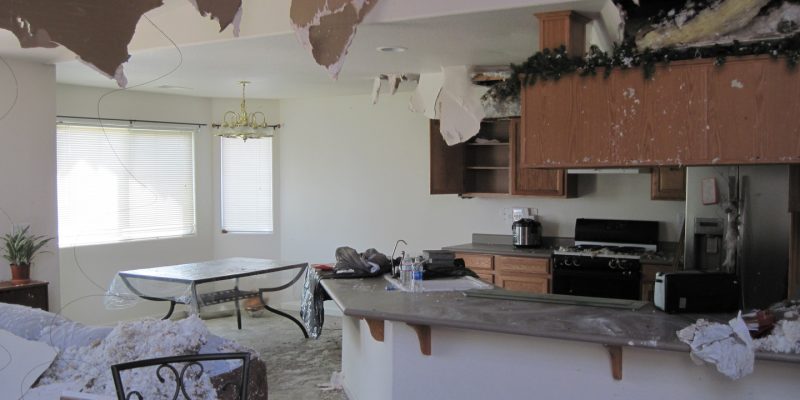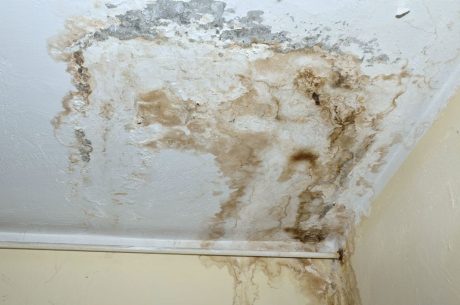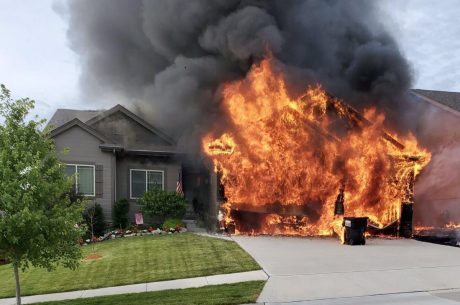Water damage is one of those silent threats that can wreak havoc on your property if not addressed immediately. Whether it’s caused by a burst pipe, heavy rainfall, or flooding, the longer you wait to deal with it, the worse it gets. This article will explore why delaying water damage cleanup is not only costly but also risky. We’ll break down the consequences of procrastination, how quickly you should act, and why it’s always better to call in the professionals.
What Happens When Water Damage Is Ignored?
Water damage isn’t something that can be put off until tomorrow, as it doesn’t just go away on its own. In fact, ignoring it can lead to several severe issues:
Structural Damage
Water can weaken the structure of your home or building, especially when it seeps into walls, floors, and ceilings. Over time, untreated water damage can cause wood to warp, metals to rust, and even cause foundation problems that are expensive to repair.
Mold and Mildew Growth
Within 24 to 48 hours of water exposure, mold and mildew start to grow in damp areas. These fungi thrive in warm, humid environments, making water-damaged areas their ideal breeding ground. The longer the water sits, the more mold spreads, leading to potential health hazards and increased repair costs.
Electrical Hazards
Water and electricity don’t mix, and water-damaged electrical systems can be a serious danger. Short circuits, electrical fires, or electrocution risks are real threats when water comes into contact with wiring. Delaying cleanup could result in expensive electrical repairs and even put lives at risk.

The Timeline of Water Damage: Why Immediate Action Matters
Water damage is time-sensitive, and acting quickly can prevent extensive damage. Here’s a timeline of what happens over time when water damage isn’t cleaned up immediately:
First 24 Hours: The Critical Window
In the first day after water exposure, water starts to infiltrate porous materials like wood, drywall, and insulation. This is the crucial time to begin drying out the affected areas to minimize long-term damage. If left untreated, the moisture spreads, making the cleanup process more challenging.
48-72 Hours: Increased Risks
After two to three days, mold begins to take hold, and the structural integrity of affected materials starts to degrade. The damage to your property becomes much more difficult and expensive to repair. Additionally, the risk of health hazards, including respiratory issues, increases.
Long-Term Effects: Months Later
If water damage is left untreated for weeks or months, it can lead to significant structural failures, widespread mold infestations, and potential health problems for anyone living or working in the affected space. At this point, the cost of restoration is significantly higher, and the damage may even be irreversible.
The Financial Consequences of Delaying Cleanup
Delaying water damage cleanup can be incredibly costly. The longer you wait, the higher the cost of restoration. Here’s why:
Repair Costs
As water spreads and damage worsens, repair costs multiply. What might have been a simple drying process can turn into a full-scale renovation involving replacing drywall, flooring, insulation, and more.
Insurance Complications
Insurance policies may not cover damage if there’s evidence that the cleanup was delayed. In fact, many policies have clauses that require the homeowner or property owner to take immediate action. If you fail to do so, your claim could be denied.
Lost Property Value
Unaddressed water damage lowers the resale value of your property. If mold and structural issues become visible, it could deter potential buyers, forcing you to sell at a much lower price or spend money on repairs before listing the property.
Health Risks of Untreated Water Damage
When water damage goes unchecked, it doesn’t just affect your property—it affects your health too. The presence of mold, bacteria, and other contaminants in standing water can lead to serious health problems:
Mold Exposure
Mold thrives in wet, damp conditions and can spread rapidly. Prolonged exposure to mold spores can lead to respiratory issues, skin irritation, and other health problems, particularly for people with allergies, asthma, or weakened immune systems.
Bacteria and Viruses in Contaminated Water
Floodwater often contains bacteria and viruses from sewage or chemicals, posing a significant health risk. If the water is left untreated, these pathogens can multiply, contaminating the air and surfaces within the property.
The Role of Professional Restoration Services
While you can take initial steps to mitigate damage, professional restoration services are crucial for fast, effective cleanup. Here’s why:
Expertise in Fast, Effective Cleanup
Restoration experts know how to act quickly and use specialized equipment to remove moisture, dry out affected areas, and prevent mold growth. Their experience ensures that cleanup is done correctly, reducing the risk of further damage.
Advanced Equipment
Professionals use high-powered fans, dehumidifiers, and moisture meters to dry out affected areas. They also have access to cleaning solutions that help remove contaminants, ensuring the property is safe and healthy.
How Water Damage Affects Different Types of Property
Water damage doesn’t affect all properties in the same way. Here’s how it can impact different types of properties:
Residential Properties
For homeowners, water damage can disrupt daily life and lead to significant repair costs. Delaying cleanup can lead to mold growth, rotting wood, and foundation problems that are expensive and time-consuming to fix.
Commercial Properties
For businesses, water damage can mean loss of inventory, equipment, and income. Delays can lead to business interruption and a loss of customer trust, especially if sensitive information is damaged.
Rental Properties and Liability Concerns
Landlords are responsible for ensuring their properties are safe for tenants. Delaying water damage cleanup could lead to tenant complaints, lawsuits, and costly legal fees, as well as damage to the property itself.
Key Steps to Take Immediately After Water Damage Occurs
If you’re faced with water damage, here are the first things you should do to prevent further destruction:
- Shut off the Water Source – If possible, stop the flow of water to minimize the damage.
- Remove Excess Water – Use towels, mops, or a wet vacuum to remove standing water.
- Document the Damage – Take pictures and notes for insurance purposes.
- Call a Professional – Contact a restoration expert to start the cleanup process immediately.
How to Prevent Water Damage in the Future
Preventing water damage is much easier than dealing with it once it happens. Here are some tips to help you protect your property:
- Maintain Gutters and Downspouts – Keep gutters clean to avoid water pooling around your foundation.
- Seal Cracks in Walls and Windows – Prevent water from entering through any gaps or cracks.
- Install a Sump Pump – In flood-prone areas, a sump pump can prevent basement flooding.
When to Call a Professional: Understanding Your Limits
While it’s important to act fast, it’s also crucial to recognize when the problem is beyond your ability to fix. Here’s when to call in the experts:
- Widespread Flooding – If water has affected large areas, it’s time to call professionals.
- Electrical Hazards – If electrical systems are involved, don’t attempt cleanup on your own.
- Mold Growth – Once mold starts growing, it’s often beyond DIY cleanup.
How Delays in Water Damage Cleanup Impact Insurance Claims
Insurance policies often require that homeowners take immediate action after water damage occurs. Delaying cleanup could lead to:
- Claim Denial – Insurers may deny your claim if they can prove the damage was caused by neglect.
- Reduced Payout – If cleanup was delayed, your payout may be reduced, leaving you with higher out-of-pocket costs.
Common Misconceptions About Water Damage Cleanup
Many people believe that water damage can wait, but these misconceptions can lead to bigger problems:
- It Will Dry Out on Its Own – Water damage doesn’t just dry up—it causes long-term issues.
- It’s Just a Small Leak – Even a small leak can cause significant damage over time.
The Psychological Toll of Water Damage
The stress of dealing with water damage can be overwhelming, especially if cleanup is delayed. Financial strain, emotional distress, and the uncertainty of recovery can take a toll on your mental well-being.
How Puroclean Restoration Specialists Can Help
Puroclean Restoration Specialists offer quick, professional water damage cleanup services in Scottsdale, AZ. By acting fast, they help you mitigate further damage and restore your property to its original state.
Conclusion: Don’t Wait—Act Now
Water damage is not something you can afford to ignore. The longer you delay cleanup, the more expensive and dangerous it becomes. Call Puroclean Restoration Specialists for fast, reliable service that helps you protect your property and health.
FAQs
- How soon should I address water damage? It’s crucial to begin cleanup within the first 24 hours to prevent extensive damage and mold growth.
- Can water damage be repaired without professional help? Minor water damage can sometimes be handled by homeowners, but for large-scale issues, professional help is necessary.
- Does homeowner insurance cover water damage? Water damage is often covered, but delays in cleanup can result in a denied claim.
- How can I prevent water damage? Regular maintenance, proper sealing, and floodproofing measures can reduce the risk of water damage.
- What should I do if I suspect mold after water damage? Call a professional immediately to assess and remove the mold before it spreads further.



